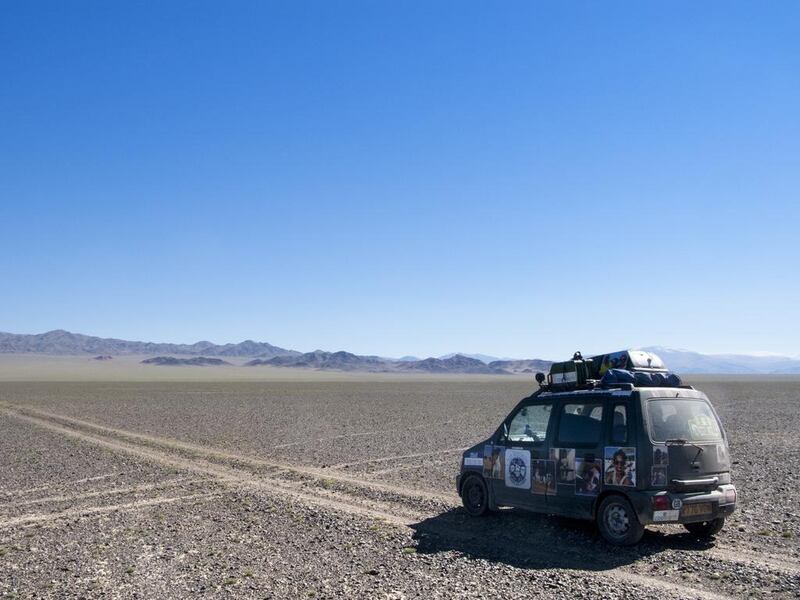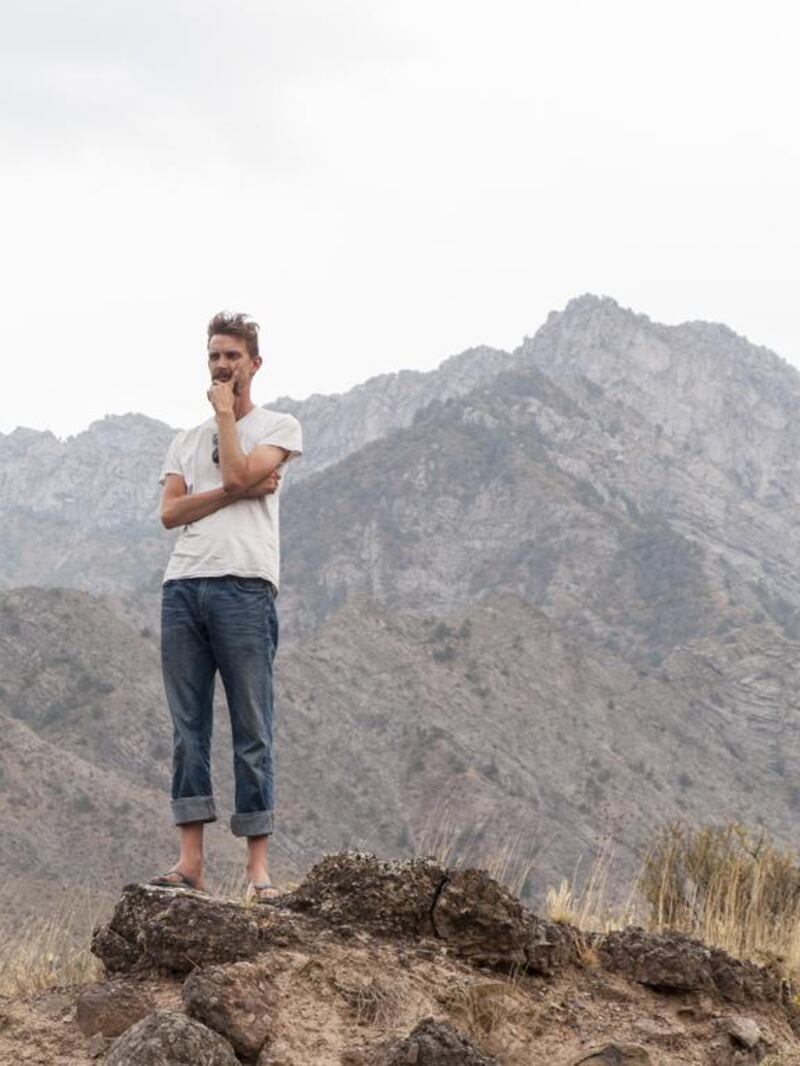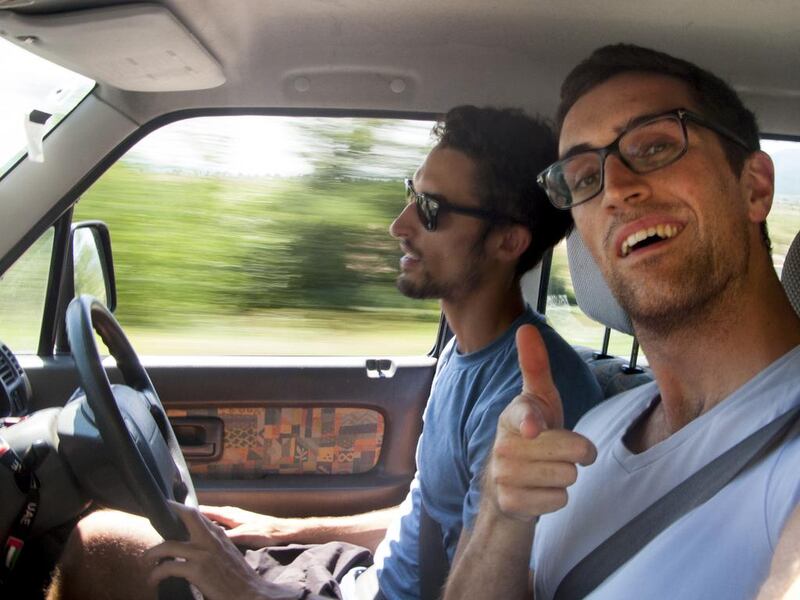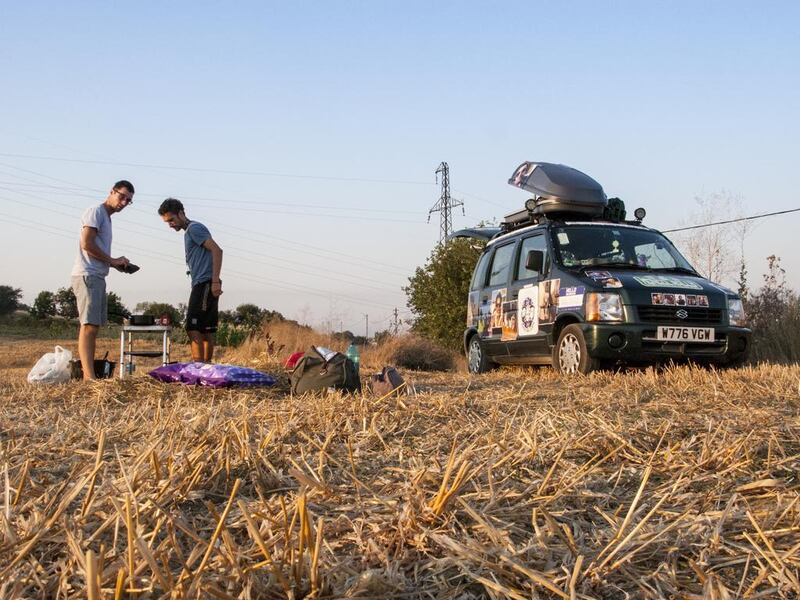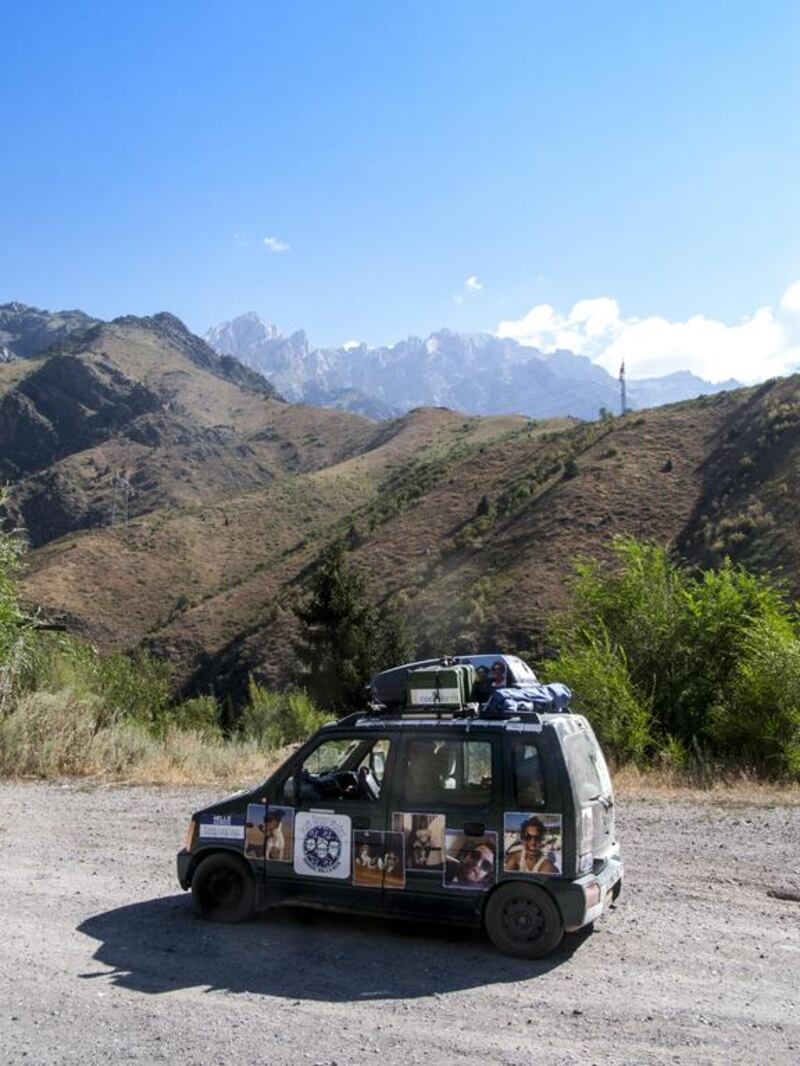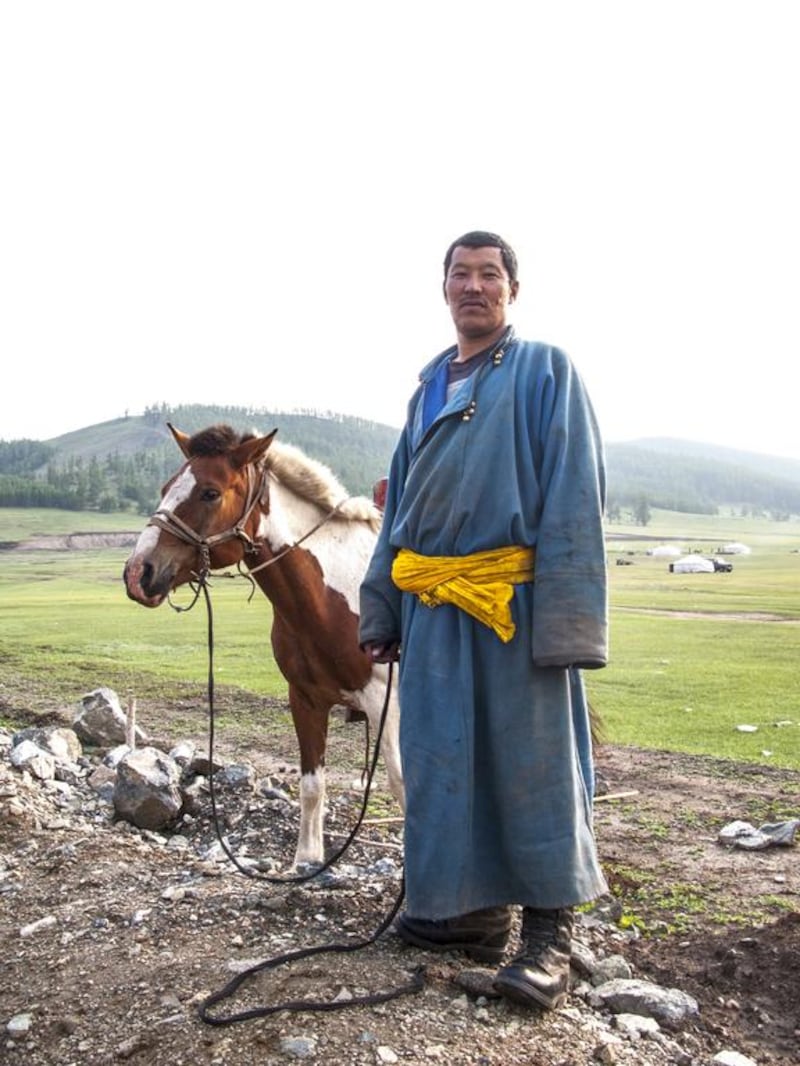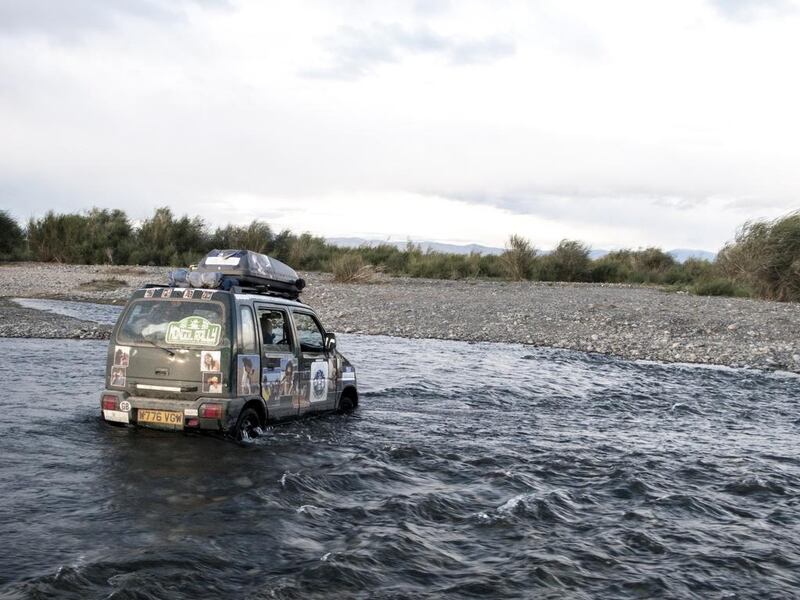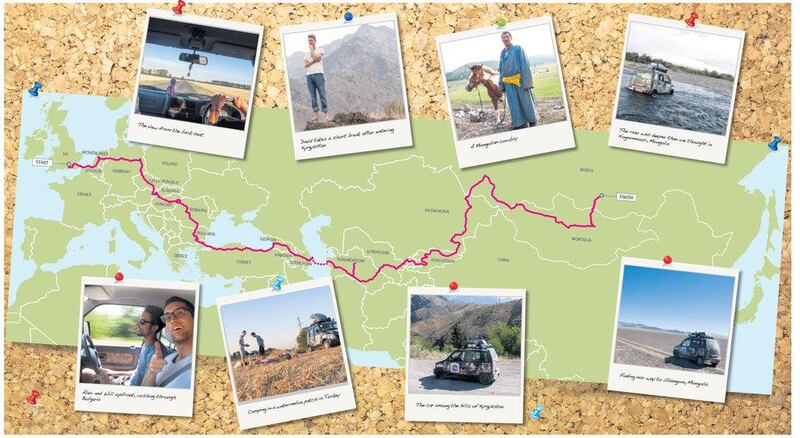Driving a "micro" car 16,000 kilometres in 33 days may not be everyone's idea of a great summer holiday, but for three offbeat adventurists from Abu Dhabi, it was the time of their lives.
Motivated by the challenges, variety and prospects for personal growth, Team Anserimates (a play on the obscure Mongolian dinosaur the Anserimimus) – comprising William Harbidge of New Zealand, and David Knapp and Alex Niswander, both of the United States – took on the Mongol Rally in July and August, driving through some of the most scenic and remote parts of Europe and Asia in a tiny, underpowered car (one of the requirements set by the unconventional event organisers).
The annual rally – from the Goodwood Motor Circuit, Chichester, United Kingdom, to Ulan Ude, Russia – is unlike any other. The objective is an epic, storytelling journey, rather than a race to the final destination. Teams must also raise at least £1,000 (Dh5,575) for the event charity, Cool Earth, along the way.
Participants are instructed to tackle the journey completely unaided, without the help of a support team or GPS, and by figuring out their own route beforehand.
Needless to say, the effort was far from a breezy Route 66 road trip, and despite their efforts to plan meticulously for every possible scenario beforehand, the Abu Dhabi men took away some harrowing and humorous stories from the unforgettable cross-continents experience.
Of the 17 countries, countless remote villages, untouched deserts, plains and unforgiving terrain they traversed in their second-hand Suzuki Wagon R, all three agree the most difficult crossing was Mongolia.
“We thought Bulgaria was hard, then Turkmenistan came along, replaced by Kazakhstan. None were close to the five days it took us to cross Mongolia,” explains Harbidge, 28, who works in mechanical design, and met his teammates through regular Ultimate Frisbee meets in Abu Dhabi.
“At night it was 0°C. Most roads were bog-mud with a river flowing through; otherwise, it was large rocks and cattle. The banks were never open, petrol stations took neither credit cards nor US dollars, and there was no common language besides drawing and hand gestures.”
Knapp, a 35-year-old music-education professor, describes the Mongolia crossing in detail. “There are essentially three ways to travel from the western region to Mongolia’s capital in Ulaanbaatar. We chose the Central Route.
“It’s the route less-travelled, because in many places there are no roads at all or even footpaths, but we only had five days to cross the country, and thought this would be our best chance,” he says.
“It was unclear how much of this 1,300km route had been paved. Well, we can now confirm that while it’s under heavy construction, probably about 300km is paved; the rest is either vast, open prairie, or miles and miles of road construction and detours.
“What’s more, our timing was perfectly terrible,” he continues. “In the days before we hit the beginning of the road construction, there was a large rainstorm, and all those hundreds of kilometres of dirt track and dirt piles waiting to be turned into road, had been flooded, and turned into a marsh.
“Our micro car darted across bogs and rivers that Land Cruisers and lorries couldn’t manage – at every rough spot, there was at least one truck stuck with mud up to its hood. Every metre required focus from the driver to not get stuck, while the two passengers helped look ahead to find the best route through.
“Whenever we crossed a river, we would roll up our pants – in 2°C weather – and wade in to find the most appropriate path. It was very slow going. One day we woke up very early and drove 14 hours, only to have travelled about 75km by sunset.”
The pinnacle of the drama, Knapp says, happened 500km from their next planned stop, Mongolia’s capital Ulaanbaatar, where after a driving miscalculation, they found themselves at an indefinite halt in a river.
“We came up to another river that seemed crossable, decided on the best path, I lined the car up, and drove in. Unfortunately, there was a small dip in the middle, and maybe I also took it a bit too fast, and water came up over the hood and stalled the engine. It was flooded, stuck in the river, and in our limited space, we didn’t pack some of the tools for this kind of situation.
“I needed to be on a plane in less than three days, and we all had non-refundable flights,” adds Knapp.
Luckily, through hand gestures and sound effects, they were able to communicate with and get the attention of a man fixing a motorcycle at a family yurt they spotted half a kilometre away. The yurt dwellers were quite amused by the spectacle, and crowded the scene; soon enough, Knapp found himself playing Frisbee with the local kids while they waited. “I don’t think they had ever seen a Frisbee before – they were totally mesmerised,” he says.
Still, the locals failed to resolve the issue, and time was quickly running out.
“Then some guy in a really fancy Lexus SUV rolled up wearing an awesome cowboy hat,” continues Knapp. “He was very genial, and spoke a little bit of English. He and a friend got out and started tinkering, they hooked our car up to theirs, and began towing it. Once our car got going fast enough, they cranked it right up, and it worked.”
Despite the challenges, the trio agree that the Mongolia leg was also their favourite. “It was all worth it for the scenery and experience,” says Harbidge.
Luck, circumstance and huge helpings of patience and perseverance saw Team Anserimates cross the finish line after 33 days on the road.
With further help from their mysterious Lexus-driving aide, who turned out to be a member of Mongolia’s parliament, they were able to rush exhaustive border-crossing queues to process their passports and exit forms in the nick of time to catch their flights.
The Suzuki Wagon R, which they found on the second-hand-goods website Gumtree, had taken a beating, but stood up to everything that was thrown at it, too.
The mechanics-savvy Harbidge, who took dune-driving lessons in preparation for the rally terrain, says of the car they nicknamed “Daddy Long Legs”: “She did excellently. We only shattered two rear springs, which were repaired for US$30 [Dh110] in Kazakhstan, repaired the wheels seven times, ruined our sump guard – glad we fitted one at the start – had a small interior fire and myriad smaller issues.”
“The inside stinks of mildew after being submerged in water a few times. Every surface is covered in either dirt, or reminders and schedules written in permanent marker,” adds Knapp.
“Suzuki make a great micro van,” says Niswander, a 26-year-old engineering graduate.
As for the modern comforts they struggled without, while Niswander admits to an overpowering desire for something greasy such as stuffed-crust pizza, they all agreed functioning bathrooms and running water were most sorely missed.
“Once we left Baku, there were only squatter outhouses. My quads have never been stronger,” jokes Knapp.
So, would they do something like this again?
“Absolutely, but with more time,” says Harbidge. “Though tight timing created our tales of hardship, something forever synonymous about this trip for me, I did regret missing the opportunity to pause for a moment and soak it in.”
Niswander agrees: “Hospitality is valued so highly in many of the countries we visited, and most of the vivid experiences happened when changing our schedule to accommodate a local.”
He says the best bit was “all of it. But really, any of the really beautiful countries. We agreed that Kyrgyzstan and Mongolia were two of our favourites – fantastic outdoor settings and friendly people combined to make our impressions quite positive.
“If I were to do this again, the route would need to be substantially different,” adds Niswander, who rewarded his efforts with some leisurely travel through Moscow and St Petersburg. “I would consider doing a similar event in a different part of the world.”
As for Knapp, his next adventure is already in the works. "I'd like to do my own version of The Motorcycle Diaries, but on a bicycle. Cycling through South America would be beautiful."
The charity element of the trio’s Mongol Rally was that, like all the other teams, they were raising funds for Cool Earth, a non-profit organisation helping to protect rainforests by developing indigenous communities.
Team Anserimates achieved their £1,000 target and more, choosing to also raise funds for the Aga Khan Foundation, which assists communities in East Africa and Central and South Asia through a variety of efforts related to health, education, finance, cultural renewal and development.
To date, they have collected more than £4,500, which will be split equally to aid both organisations, and are still accepting donations. Contribute by visiting uk.virginmoneygiving.com/team/anserimates.
weekend@thenational.ae

